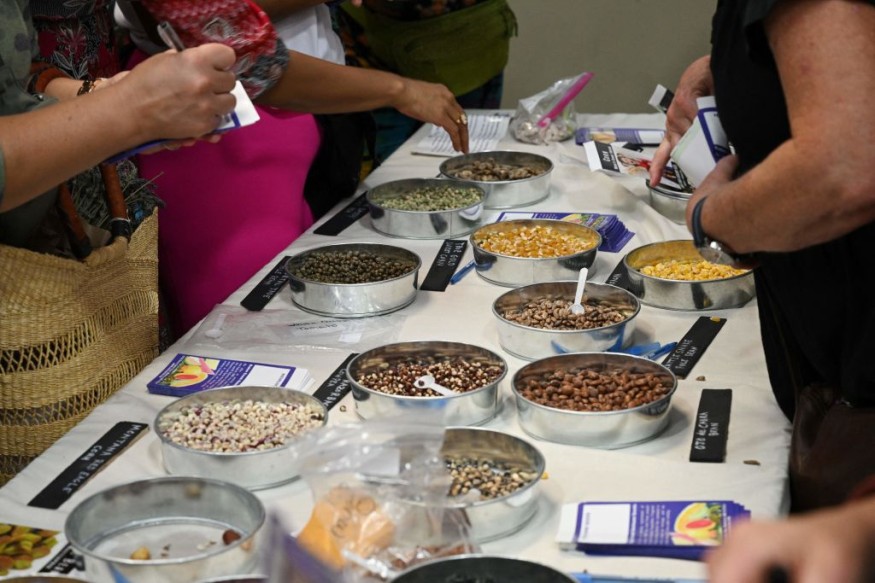
Experts scrambled to create seed strains that are resistant to harsh weather as erratic and extreme weather conditions proliferated over the past growing seasons.
Extreme Climate and Crop Failure
Stacy Mates, Green Things' seed company manager, observed a significant shift in weather patterns.
Traditionally, they had relied on consistent spring rain and early summer, followed by hot, dry late July and August, and renewed rains in September, ideal for lettuce seed crops. However, in recent years, a disruptive change has occurred.
Three consecutive years witnessed June droughts followed by torrential July and August rains, leading to complete lettuce seed crop failures for two years.
This year, hailstorms, severe thunderstorms, and strong winds damaged the first seed crop. Mates nurtured a second crop carefully, ultimately securing a successful harvest by late September.
Hurdles of Seed Production and Giving Up
Farmers already grapple with numerous challenges during the growing season, from battling powdery mildew on cucumbers to hornworms devouring tomato leaves and strawberries afflicted by verticillium rot.
However, for those responsible for cultivating the seeds that fill commercial packets and sustain horticultural endeavors, production has grown increasingly arduous.
So much so that Green Things recently opted to cease seed production for some crops.
While Stacy Mates, the manager, cannot pinpoint the exact influence of climate change on these challenges, its undeniable impact is apparent.
Lane Selman, an agricultural researcher at Oregon State University and founder of the Culinary Breeding Network, notes the absence of normal seasons.
As the northern hemisphere grapples with record-breaking hot summers and intensifying weather events, the diversity we once took for granted in winter seed catalogs is under threat, endangering the promise of a bountiful spring.
Alan Sparks, a seasoned industry consultant working with Baker Creek Seeds, acknowledges that seed companies face these issues but often choose not to disclose the full extent.
While they may assure the public that everything is under control, the reality is far from okay.
Outsourcing Seed Production
Green Things, a producer of vegetables, herbs, and flowers, used to grow all the seeds in their catalog.
However, many seed companies contract with various farmers due to diverse space requirements and regional adaptability. Open-pollinated seeds need extensive spacing to prevent cross-pollination.
Mates, working on half an acre, stopped growing carrots to avoid hybridization with Queen Anne's lace, a common weed.
Seed farming occurs worldwide, with the Pacific Northwest noted for favorable weather conditions.
Some companies collaborate and outsource seed production with farmers in Asia or India for climate and cost advantages.
Seed production demands rigorous training, focusing on soil treatment, plant health, and harvest timing. Seeds, being living products, require cool, dry storage to maintain quality and high germination rates while minimizing disease susceptibility.
Plants Growing From Seeds in Extreme Climates
Growing seed crops is a lengthy process. For instance, cabbage, a biennial plant, takes two years to produce seed. After pollination, seeds require meticulous handpicking, drying, and cleaning, which can span 14 months.
Extreme weather can disrupt seed production; in 2021, a heatwave hindered cauliflower pollen production.
Jim Gerritsen, an organic farmer, faces challenges from drought and excess rain. Even after harvest, seeds need to dry for a week; any moisture during this period fails, according to the Culinary Breeding Network's Selman.
Scrambling for Climate-Resistant Seed Strains
Baker Creek's heirloom nasturtium, Purple Emperor, was developed through a 7-year selection process by a Japanese seed company.
The seeds were grown in Holland and then in Punjab, India.
However, with diminishing water tables, floods in 2021, a heatwave in 2022, and only a 30% seed harvest in 2023, the region's viability is in question.
Large seed companies can adjust locations, but small-scale seed farmers need to adapt where they are.
Research into open-pollinated and hybrid seeds is crucial for disease- and pest-resistant, chemical-free, and climate-resilient options. Supporting local seed companies can help ensure their important work continues.
Related Article : Climate Change Losses Reach $140B Per Year with Prolonged Droughts, Heatwaves, Storms
© 2025 NatureWorldNews.com All rights reserved. Do not reproduce without permission.





